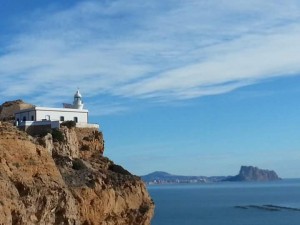What is idiomatic tourism?
 Idiomatic tourism is a form of “cultural tourism” that is an attractive and motivating way of learning and improving a language different from the native speaker’s.
Idiomatic tourism is a form of “cultural tourism” that is an attractive and motivating way of learning and improving a language different from the native speaker’s.
Defined by the “World Tourism Organization” (1991) as “the activities carried out by people travelling to and staying in places other than their natural environment for a period of time ranging from one week, two weeks, three weeks, a month or months or even up to a year in order to make a linguistic immersion in a different language to their natural environment.” In recent years, it has acquired great importance and is one of the ways that is growing, for a big part, by the growing need for knowledge and mastery of other languages but also by its combination with leisure and touristic activities.
Learn Spanish on holidays in Spain
Studies in Spain, in 2014, particularly at the University of Laguna (Canary Islands) have revealed the growing demand for touristic destinations from where you want to learn another language. Spain tops the list of over favourite Latin American countries to learn Spanish, followed by Mexico and Chile.
This type of tourism creates a high interest for their economic impact, since it is combined with visits to cultural attractions in the country, the cultural heritage and the consumption of complementary products. The idiomatic tourist is also a good source to further disseminate the qualities of a country, region or city.
Idiomatic tourism is mainly characterized by including a tourist profile ranging from young to old ages whose stay in the country of destination is higher than usual. This form of tourism falls into the category of so-called “educational tourism” that is sometimes combined with other activities such as sports, adventure or ecological among others. The idiomatic tourism has passed from being a practice that was mainly concentrated in the summer months (June to September) to a practice that is extended throughout the year. The main destination at the beginning of this modality was related to the English language and occurred mainly in the British Isles, but now many new languages and destinations have emerged, among which are those countries with touristic interests of the languages with greater expectation of growth, such as English, Spanish, or Chinese.
The Costa Blanca in Spain bets for the internationalization of destinations attracting idiomatic tourists.
United States, China, Germany, Norway and England are the main scenarios in which the patronage of Costa Blanca will develop in 2016 its promotion strategy focused on attracting visitors involved in the language tourism. The organization of “fam trips” (family trips), the attendance at trade fairs or participation in academic events are some of the activities that the autonomous agency of the Provincial Council of Alicante will implement to potentiate the stay in the country of destination during all seasons and increase the visitor arrivals throughout the year.
Through joint actions with other institutions and organizations, the tourism agency has set a goal to spread the sport, heritage, landscape and provincial gastronomy to those visitors who choose the province for linguistic or academic training.
From next February and until almost the end of the year, the Costa Blanca Board will take action in Norway with the Student Recruitment Fair in Oslo; in the United States in with the participation of NAFSA fair to be held in Denver (Colorado); in China with a “fam trip” for journalists from China; in Berlin with the attendance to ICEF and finally in England, where they will travel to appear in the Language Live Show.
It’s been highlighted that the growth in recent years of the number of students who come to the province to learn the language and it has been specified that the success of this initiative is due to a strategy in which, among other things, stands out the expansion of Spanish courses through the Language Centre AU and the attractive offer of a destination to the Costa Blanca. “Students who come to the province create a bond and we encourage them to return with friends”.
Learn Spanish on holidays in Spain; The Language Centre of the University of Alicante receives nearly 3,000 foreign students from all over the world but especially from European countries and others like the US or Japan every year, but it is beginning to proliferate the arrival of students from other destinations such as Brazil Korea and India, among others. So, book your holiday to the Costa Blanca to study and learn the Spanish language, the third most spoken language in the world and a current language boom, that according to statistics it will become the second most spoken language and used in the world thanks to the worldwide expansion of the language. If you choose the Costa Blanca, you will not go wrong, because in this region we have everything that a tourist wants: a fantastic climate throughout the year, guaranteed sunshine, spectacular beaches, a varied gastronomy, picturesque towns full of festivities and heritage of cultural interest and of course, qualified teachers to immerse yourself in this beautiful language, the Spanish people welcome you all!
Learn Spanish on holidays in Spain and Altea
If you decide for a more ´boutique´ course contact Spanish courses Altea and we will arrange a great stay for you in the beautiful village of Altea and a tailor made course for you and maybe your family, business or friends
